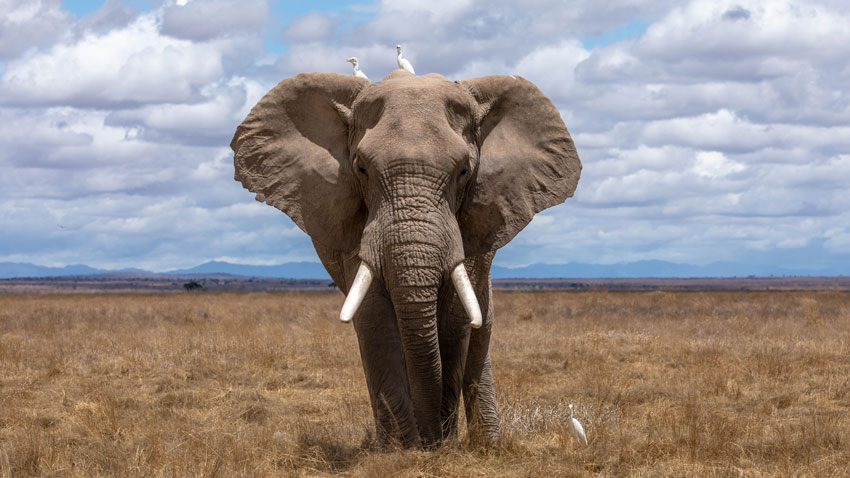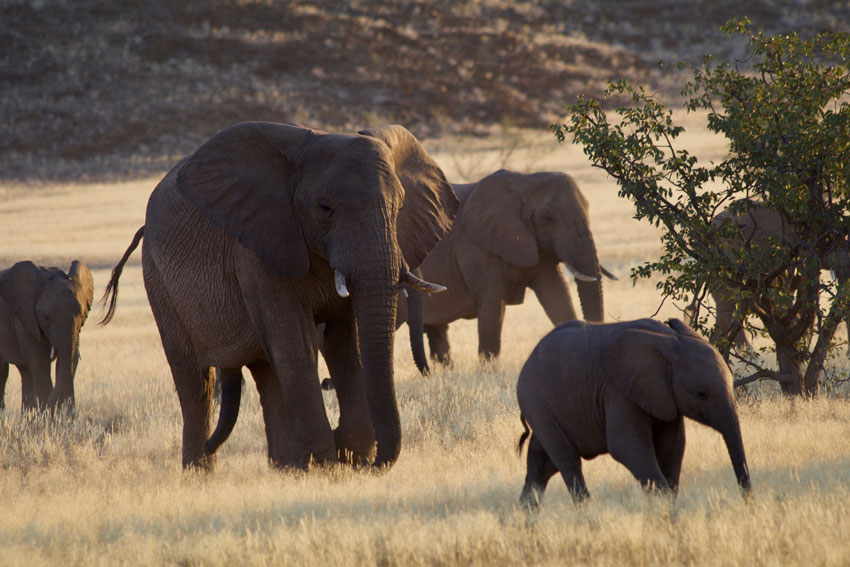Being a mother elephant is no easy task. She is especially protective of her calf; she could only give birth to one at a time. After carrying her baby for almost two years, it would be such a tragedy if her calf falls prey to predators in the wild.
But the mother elephant doesn’t struggle alone. She receives help from other members of the herd. Together as one, the herd forms strong social bonds and communicates in order to face natural threats around them.
How do elephant protect themselves from their enemies

People used to think that elephants have no natural enemies. This is because of the observation that predators don’t seem to bother them as much as other animals. But studying elephants more closely reveals that this is not always the case.
Elephants seem to deter predators partly due to their intimidating size and their herd behavior. Lone predators like cheetah and leopards will not stand a chance to take on even the smallest or weakest elephants – herd members will most likely work together to threaten the predator by growling, displaying hostile body language, and charging in masses.
However, some pack predators like lions and hyenas are able to coordinate and successfully break into the protective barrier to harm calves. This happens less frequently to herds with more experienced members. Some young elephants make the mistake of wandering too far from their protective herd, and that makes for an easy pick for predators.
Experienced leaders

A herd is a lead by an older female elephant, who is tasked with the burden of leading the herd towards safe feeding grounds away from drought, and to detect dangers early on.
In fact, predator awareness is crucial to the survival of a herd, so that the elephants can prepare physically and mentally to fight off predators, if not having a head start to avoid the conflict.
Researchers have played a recording of a lions’ roar to herds of unsuspecting elephants. They found that the matriarch (the female leader) of various herds responds fairly quickly to the recordings. They were the ones to show anxious behaviors and were the most vocal (presumably to communicate and organize the others).
It has also been found that when three simultaneous recordings of lion roars were played, the elephants tend to be more anxious compared to hearing a recording of only one lions’ roar. This suggests that elephants are able to judge their strengths and the leader could find an appropriate strategy to deal with the situation.
Can we see this behavior in Bali Safari Park?
The protective behaviors of elephants are exhibited in the wild when danger is present. In Bali Safari Park, the elephants feel safe and go about their day without anxiety. However, you can still learn about the elephants’ unique social behavior and how they communicate with each other in our park. Book now directly from the site to learn more about these magnificent animals by personally checking them out up close.






